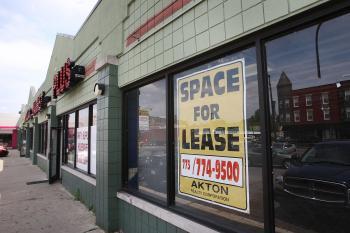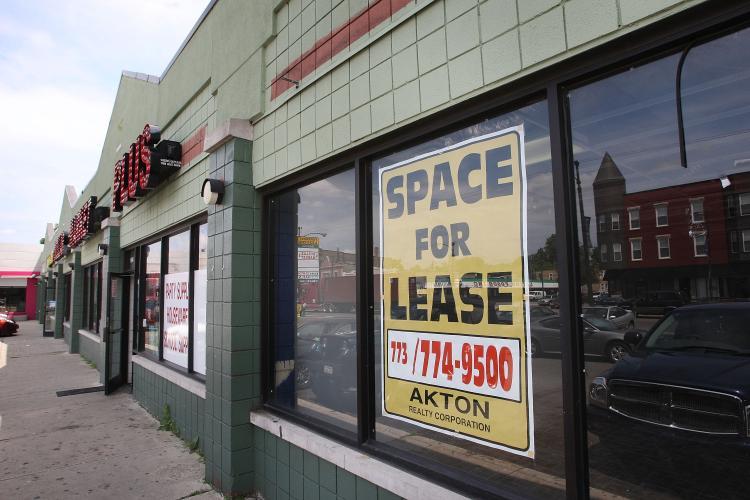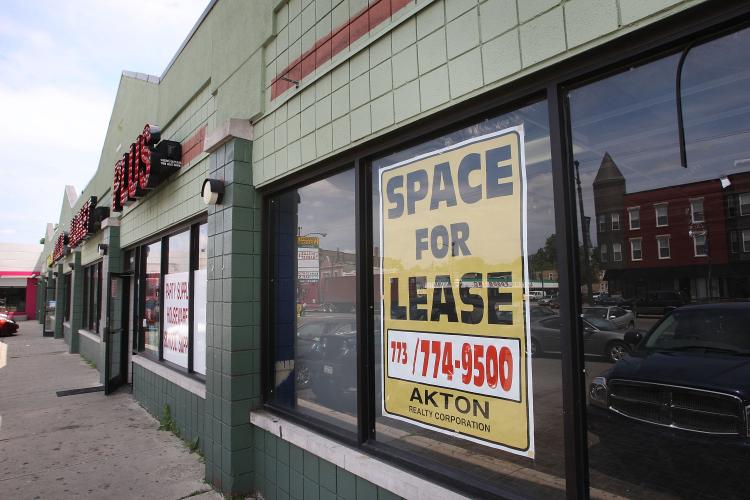WASHINGTON—Pent-up commercial real-estate capital has ready and able estate investors in fierce competition for distressed strip centers and shopping malls.
“We’ve seen quite a bit of offer activity on distressed assets,” said Donald MacLellan, senior managing director at Faris Lee Investments in a recent report by CoStar Group, a global real-estate research firm based in Bethesda, Md.
Shopping centers have been one of the hardest-hit areas in commercial properties during the financial crisis as many developers have defaulted on loans.
Emphasizing his assertion, he added, “There’s a pent-up demand and a lot of capital. We have 26 offers on a two-story 25,000-square-foot retail-office deal in South Orange County (Calif.). ... We have a single-tenant asset that got nearly 10 offers.”
However, CoStar qualified its remarks, suggesting that the demand for shopping malls and strip centers may be short-lived and move on to other types of investments.
“At some point, their appetites will be satiated through more product coming to trade and the bifurcation will end, or else they will learn to eat elsewhere,” said Suzanne Mulvee, a real-estate strategist at CoStar.
Two groups of investors—institutional investors and other types of investors—actively bid for retail properties in Boston, Detroit, Philadelphia, Denver, Houston, St. Petersburg, and other large metropolitan areas. Distressed retail properties are also on the shopping list. But the decision to buy distressed retail properties depends on the location and the investor getting rock-bottom prices.
CoStar talked to those in the know about the demand and was told that the investors go for “ ‘extremely well-located and well-tenanted’ Class-A centers with strong anchors, and ‘extremely distressed’ shopping centers with upside potential, for which investment funds have stockpiled tens of billions of dollars over the last two or three years.”
Shopping Mall Investments Galore
Many of the real-estate acquisitions have been those with high occupancy rates and tenants with good credit standing.
One example is Kimco Realty Corp., a real estate investment trust, which partnered with the Israeli-owned BIG Shopping Centers. Together, they earmarked $422 million for the purchase of fifteen neighborhood and community shopping centers, with nine of the centers located in California, two in Washington and Nevada, and one each in Oregon and Maryland.
Continued on the next page...
“This is our second joint venture with BIG Shopping Centers and we are thrilled that BIG considers Kimco a key partner in its U.S. expansion plans,” said David Henry, president and CEO at Kimco, in a recent press release.
During May, Simon Property Group Inc., a global S&P 500 real-estate firm, became majority owner of the upscale Houston Galleria in Houston, Texas, with a 50.4 percent ownership. At the same time, the company bought a Puerto Rican strip mall with 90 stores. Both acquisitions were estimated to cost Simon $385 million.
In June, Trademark Property Co., based in Fort Worth, Texas, bought for an undisclosed amount the Westland Shopping Center mall located in a Detroit suburb, which was last sold in 2003 for $80 million. Media speculations are that the mall was sold at the same amount as in 2003, as the 12-month average price for such property was $82 per square foot at the time.
Reality Setting In
Investors who do not shun distressed strip or shopping malls are saying that bargains are out there, but they are more difficult to find. This type of investor looks for the lowest possible investment usually in New York, Southern California, and Pennsylvania, which they can walk away from if the riches do not materialize.
“Deals getting done today are foreclosure sales and single-tenant, net-leased properties, with few buyers seeming to be willing to take a chance on tenancy risk. This distaste for high vacancies is reflected in the rock bottom discounts some buyers are receiving,” according to CoStar.
Two major distressed properties have been sold for almost peanuts. World Properties Inc. purchased for a little over $10 million, including all acquisition costs and assumption of an existing mortgage note, the Cincinnati Mall, a mall that went for more than six times this amount in 2002.
The other distressed property was the Charlestown Mall, located in St. Charles, a suburb in Chicago, which was bought by a California-based investment group for an undisclosed amount. According to CoStar, the rock-bottom price was $11 per square foot in June.
CoStar suggests that investors with little know-how about the workings of a mall should not attempt to take advantage of rock-bottom prices.
“In this current market, we’re finding that distressed retail transactions require a strategic mix of expertise,” said Richard Walter, president at Faris Lee Investments in the CoStar report.
“The [investment] team needs to understand location, market timing and have a depth of experience working with everyone likely to be involved in the transaction including owners, lenders, retailers, servicers, receivers … .”
Expert Information at One’s Finger Tips
“Currently, there are no effective, non-biased indices to measure commercial real estate price movements, and even less comparative information by property type or geographies,” said Andrew Florance, CEO at CoStar.
Therefore, at the end of July, CoStar rolled out “the first comprehensive repeat sales index for commercial real estate,” which advises investors if monthly real-estate values are going up or down.
For investors to make an educated investment decision, exact measurement tools are of great importance. Methods that look at repeat sales, averages over time, property appraisals, and other existing methodologies are ineffective in today’s volatile market.






